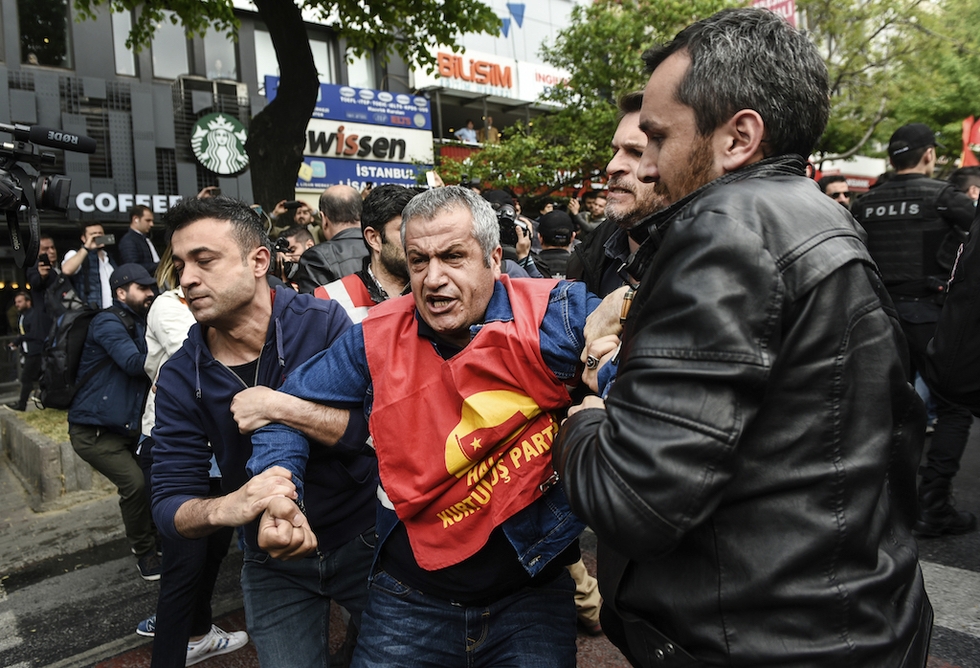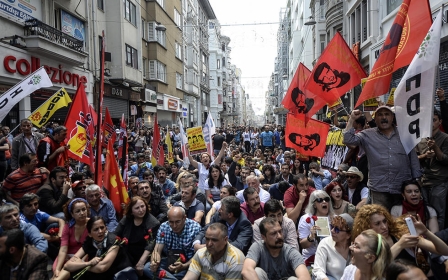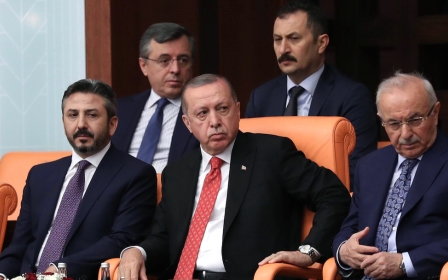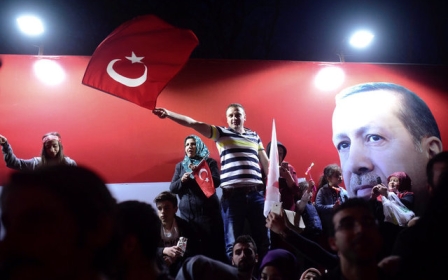Turkish police clash with May Day protesters in Taksim Square

Turkish police arrested dozens of protesters on Tuesday as they attempted to mark May Day by marching through Istanbul's Taksim Square, despite a long-running ban on congregating there.
The square, which has historically been a gathering point for anti-government demonstrations, was entirely cordoned off by police.
The city's main shopping street, Istiklal Avenue, was also blocked off. According to Anadolu Agency, 84 protesters were arrested in total in Istanbul and taken to buses for questioning.
In spite of the restrictions, thousands took part in celebrations of May Day, also known as International Workers' Day, across Turkey, while Turkish President Recep Tayyip Erdogan hailed the contribution of Turkish labourers in a speech.
In terms of the what the rally means for the opposition, it has been a boost for all kinds of forces that are going to stand against Erdogan in the elections, because we have very few chances to mobilise on the streets due to the State of Emergency
- Ozan Tekin, left-wing activist
“With no preconditions or prejudices, we have come together with all labour unions and civil society organisations whose real agenda is workers’ rights and benefits; we have had discussions and reached agreements," he said in a message issued on Sunday.
"We have taken care not to be one of those who instrumentalise workers and labourers on such a meaningful day as 1 May."
The Istanbul district of Maltepe became the main venue for the officially sanctioned May Day gathering, which took on the appearance of an anti-AKP demonstration.
"Today's march is a way for the working class to breathe and to raise our demands," said protester Huda at Maltepe, according tp AFP
Among the groups represented were supporters of the opposition Peoples' Democracy Party (HDP), the Turkish Labour Party (EMEP), the Confederation of Public Workers Union (KESK), the Confederation of Revolutionary Trade Unions of Turkey (DISK) and the left-wing Anticapitalist Muslims collective.
Anadolu reported that over 26,000 police were on duty in Istanbul, supported by three helicopters, 85 water cannon vehicles and 67 armoured vehicles.
Ozan Tekin, a Central Committee member of the Revolutionary Socialist Workers Party (DSIP) who took part in the march, said that May Day was one of the few spaces left for the Turkish opposition to express their discontent without arrest or censure.
"It is very difficult to hold any kinds of rallies, protests or demonstrations, this is one of the rare occasions when the opposition can go on the streets to express opposition to the policies of the government," he told Middle East Eye.
He said that while in previous years there had been organising to directly break the ban on marching in Taksim Square, he said that there had been no such call this years and said "sectarian" behaviour by a few small groups was being overemphasised in the media.
"90 percent of all left-wing groups called for the march in Maltepe," he said. "Those who wanted to march in Taksim numbered only a few hundred."
May Day celebrations also took place in the eastern city of Van, with both Turkish and Kurdish activists taking part:
The gatherings come as the country prepares for snap presidential and parliamentary elections on 24 June.
Erdogan is set to seek a second term as head of state with increased parliamentary powers.
Tekin said that the May Day rallies were important in the run-up to the election, in terms of providing a public stand against Erdogan's policies under the State of Emergency imposed following the 15 July 2016 coup attempt.
"In terms of the what the rally means for the opposition, it has been a boost for all kinds of forces that are going to stand against Erdogan in the elections, because we have very few chances to mobilise on the streets due to the State of Emergency," he explained.
New MEE newsletter: Jerusalem Dispatch
Sign up to get the latest insights and analysis on Israel-Palestine, alongside Turkey Unpacked and other MEE newsletters
Middle East Eye delivers independent and unrivalled coverage and analysis of the Middle East, North Africa and beyond. To learn more about republishing this content and the associated fees, please fill out this form. More about MEE can be found here.




